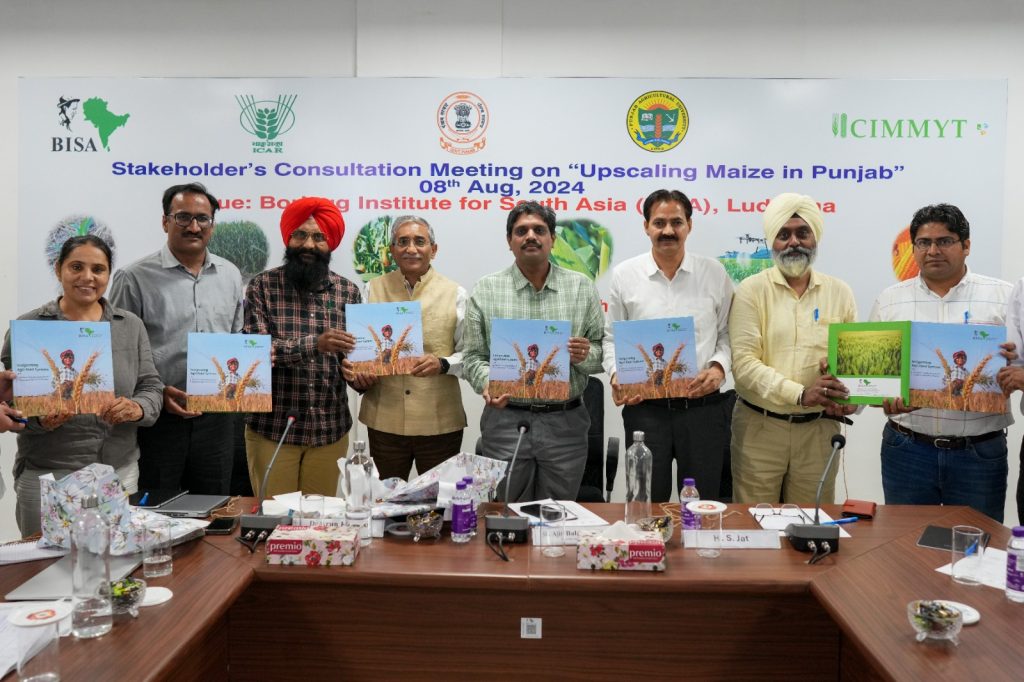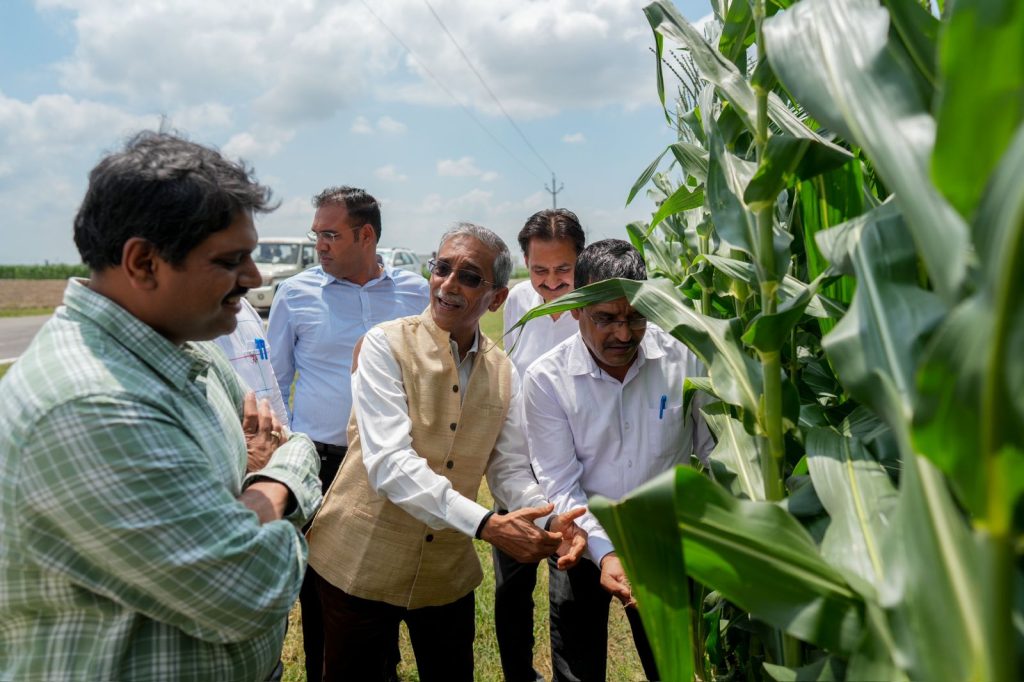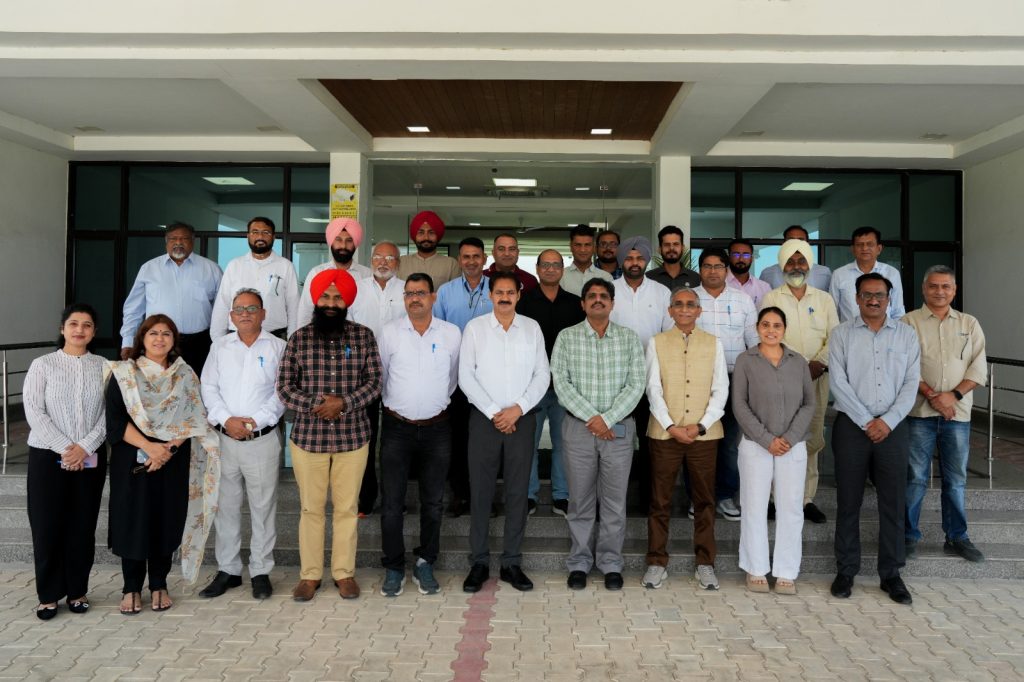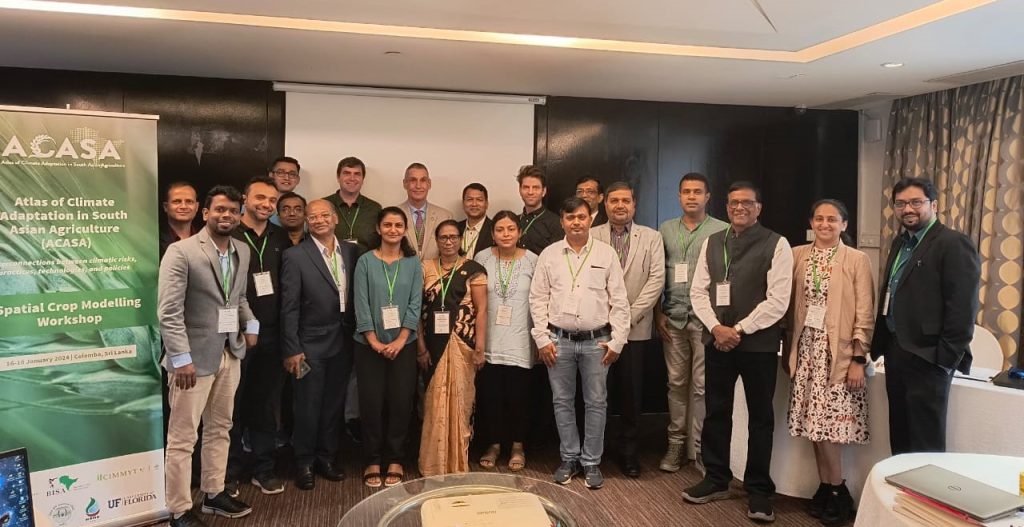A joint effort to upscale Maize production in Punjab
By

Ludhiana, August 8, 2024: There is a dire need to boost the Maize production in Punjab as the area of land used to grow Maize has decreased. Maize is the most versatile crop having adaptability under varied agro-climatic conditions. The queen of cereals is known
for its highest genetic yield potential. According to the experts there is a huge possibility to grow Kharif Maize for biofuel needs in Punjab. Its time that the Punjab farmer shift the interest from Spring Maize to Kharif Maize and meet the rising demands of the various Industries. To address these issues and challenges, the Borlaug Institute for South Asia (BISA) organised a stakeholder consultation meeting on “Upscaling Maize in Punjab” at its research farm in Ludhiana. Various stakeholders from the private sector, public sector, and Ethanol Industry joined the discussion and delebrated on the future of Maize in Punjab.
In 2023, farmers cultivated maize on 97,000 hectares in Punjab however the experts believe that Punjab can grow Kharif Maize on 5 lakh hectares by stengtehning the whole value chain in Punjab by taking some new initiatives.

“Maize promises to be a big contributor in Ethanol which is a new generational fuel. Currently there is a huge gap and we see the production of best quality seed during Kharif season is the need of the hour. Our will is to diversify 10 lakh hectare of land in Punjab. CIMMYT-BISA is a global name hence this stakeholder consultation is the first step to meet our set targets for the coming year. We extend our complete cooperation to all the stakeholders present here” said Ajit Balaji Joshi, Secretary, Agriculture and Family Welfare.
Today in India, Maize is the third most important cereal crop after rice and wheat hence BISA together with CIMMYT works on various issues like evaluation, and scaling of new hybrids of maize in South Asia, long-term research on Conservation Agriculture in a Rice-Maize Cropping System of Eastern Indo Gangetic Plains (IGP) and hybrid seed production of Maize.
“This consultation is BISA’s commitment to reach to the farmer and find solutions to their challenges. In this meeting our main aim was to deliberate on issues surrounding the Maize in Punjab and look for their solutions collectively with our stakeholders from different sectors. Taking Maize research to the forefront and clearing all the bottlenecks to create a sustainable and economically viable Maize production for Punjab is the mandate. In collaboration with ICAR, CIMMYT-BISA has worked on high yielding hybrids therefore our experience would contribute at large towards this initiative” said Arun Kumar Joshi, MD, BISA

The depletion of subsoil water is a major concern as 20 out of 23 districts in Punjab are in water-stressed conditions therefore the urgency of the situation cannot be overstated. Government of India has set some targets for the production of Maize to meet the current demands and increase the incomes of the farmers.
“We all have to come together to achieve this target. Productivity has been constant in Punjab, as the good seed is not easily available. We require high-yielding maize hybrids for Punjab to boost the production. However this is possible only when public & private sector comes together and work parallely. Government policies are in favour of Maize. SATHI portal is a step towards this by the Government of India. It is a Centralized Online System for seed traceability, authentication and inventory designed to deal with the challenges of seed production, quality seed identification and seed certification” said H S Jat, Director, IIMR, Ludhiana.



